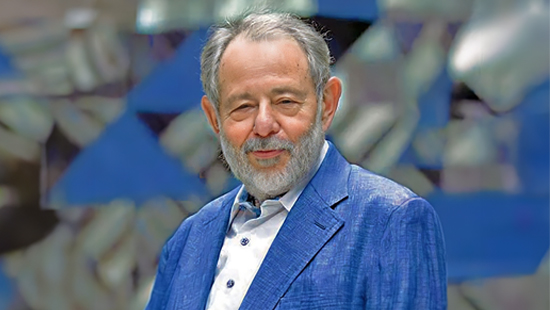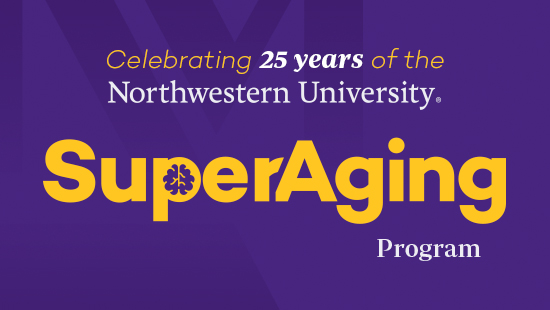Learn About SuperAging
The Northwestern University SuperAging Research Program (NUSAP) was designed to approach aging and Alzheimer’s disease differently. Instead of studying the negative consequences of aging and disease, NUSAP is identifying and factors that allow for a unique aging trajectory where individuals maintain youthful memory function.
"SuperAgers" are defined as adults over age 80 who have the memory abilities at least at the level of individuals 20-30 years younger. The primary goal of this research is to identify factors that may help others maximize their healthspan and may be important for avoiding Alzheimer’s disease pathology or its effects. We are still enrolling SuperAgers!
Celebrating 25 Years of SuperAging at Northwestern
The Mesulam Center for Cognitive Neurology and Alzheimer's Disease initiated the Northwestern University SuperAging Program (NUSAP) 25 years ago to show that the preservation of memory into the 80’s and beyond does happen and that a long life does not necessarily lead to Alzheimer’s disease. We are immensely grateful to all of our participants for generously donating their time and wisdom year after year and look forward to continue working together for many years to come.
About the Study
Learn more about the SuperAging study.History of SuperAging
Learn more about the history of the Northwestern Unversity SuperAging Program.Researchers and Collaborators
View additional information for researchers and collaborators.
- Marsel Mesulam, MD
"Involutional and developmental implications of age-related neuronal changes: in search of an engram for wisdom"
Neurobiology of Aging, 1987
